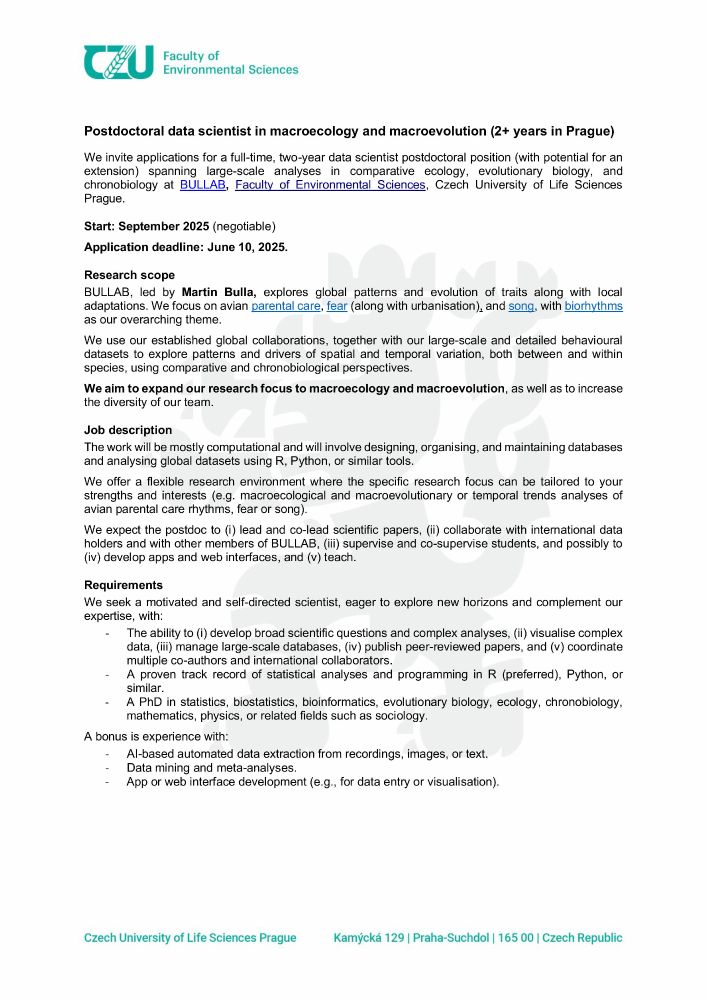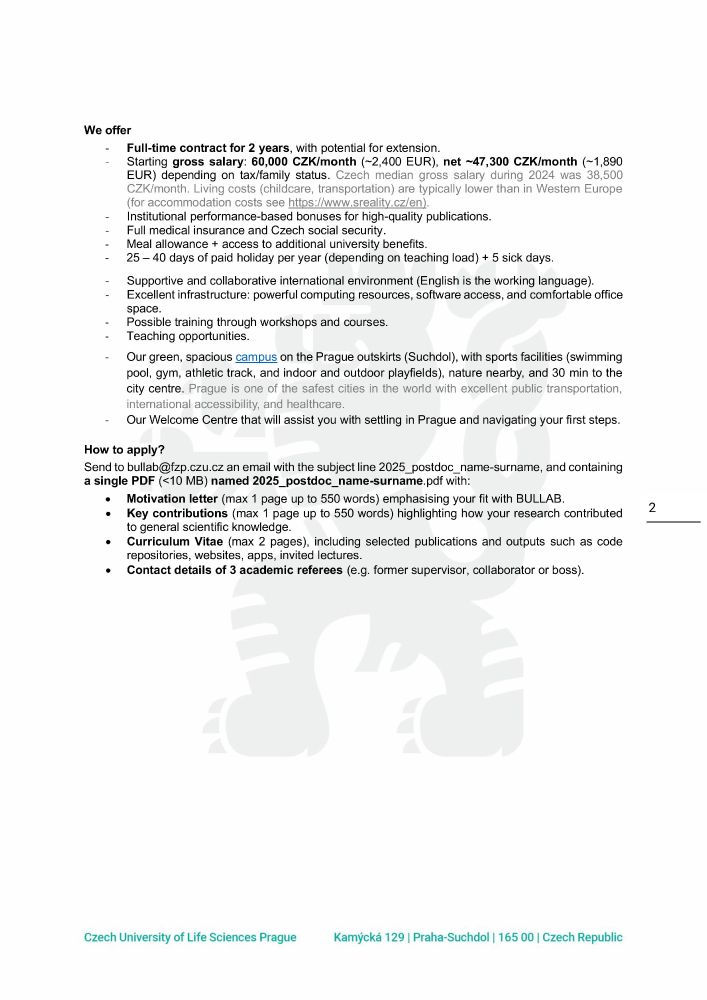Peter Mikula
@birder158.bsky.social
50 followers
19 following
5 posts
Postdoc at @tumuenchen.bsky.social & Czech University of Life Sciences. @sciencecharles.bsky.social and Fulbright at UCLA Alumni. Macroethology, behaviour, geography of fear, culturomics, iEcology, birdsong
Posts
Media
Videos
Starter Packs
Peter Mikula
@birder158.bsky.social
· Feb 27







